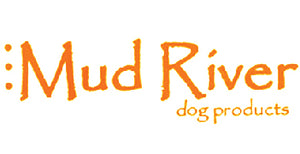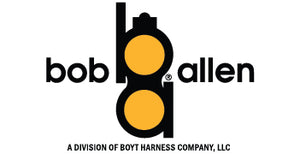Dog Poisoning by Rodenticide Rodenticides:
To kill off invasive pests like rats or mice, people often use rodenticides, commonly known as ‘rat poison'. These poisons, found in homes, farms, building sites, and commercial buildings, also pose a very real threat for our domestic animals who may ingest them accidentally.
If your dog ingests rodent poison (rodenticide), there are a few things your vet will need to know to help your pet:
- What time (approximately) did ingestion occur?
- What kind of poison (the name brand or the active ingredients list)?
- Approximate amount ingested
- Body weight of your dog
These facts will determine what treatment options will be most beneficial. For simplicity, only the anticoagulant type of poisons will be discussed in further detail here. Treatment is dictated based on the type of poison ingested and the symptoms of the patient. A variety of ingredients can be used in rodenticides and the active ingredients determine how the poison kills its target. The active ingredients in anticoagulant-type poison can include: chlorophacinone, diphacinone, warfarin, bromadiolone, brodifacoum, and difethialone. At the end of this article you will find a link that can explain in further detail about all types of rodenticides as well as phone numbers for poison ingestion hotlines in pets.
Anticoagulant ingestion
Anticoagulants interfere with the body's ability to repair blood vessel damage. When a blood vessel is damaged it becomes leaky, leading to small internal bleeds. A complex cascade of events is involved in order to form a blood clot to repair vessel damage. This process is occurring all the time throughout the body to keep blood circulating. Anticoagulants interfere with this process resulting in internal bleeding. If not corrected in time, this eventually leads to death via exsanguination.
Treatment
Evacuation of the poison is the first and best option to prevent absorption of poison; in other words, get the poison out of the dog's system! If it has been four hours or less since ingestion, your veterinarian will likely recommend induced vomiting. In dogs, this can be done by administering 3% hydrogen peroxide by mouth. The dose is weight-dependent and your veterinarian can help you calculate the dosage. This is time sensitive, so do not delay treatment. If you do not feel comfortable doing this at home, load up your dog and head to the nearest emergency clinic. If it has been longer than four hours since ingestion, your vet will likely administer treatments to help minimize absorption of the poison from the intestinal tract. Also, vitamin K therapy will be started and blood work will be needed to determine how much blood loss has occurred thus far and how long blood takes to clot. Xrays may also be helpful to check for bleeding in body cavities. Symptoms of rodenticide poisoning do not begin to occur until several days after ingestion.
By this time, serious blood loss has occurred. Symptoms can include:
- Pale gums
- Bruising on the belly
- Swollen legs
- Bleeding from nose or rectum
- Feces colored bright green or blue
- Weakness or lethargy
- Distended belly
- Coughing or labored breathing
Blood work will help determine the severity of the poisoning. Hospitalization and blood transfusions as well as additional treatment may be required based on symptoms. Dogs that have ingested an anticoagulant are a risk of bleeding out, even if no trauma has occurred. Minor bumps or falls become life threatening.
Other Rodenticides Certain rodent poisons kill via more potent methods than the anticoagulant type of poison. While more potent may be an advantage to killing invasive pests, it also is much more deadly for pets. Most of these products do not have antidotes. Also with more potent poisons, the likelihood that pets who eat poisoned rodents will die becomes a bigger risk. Though no poison is ever safe, in my opinion anticoagulants are the safer products to have in a house where there are kids or pets. Thankfully, if an anticoagulant poison is ingested and symptoms are caught early, an antidote available.
Rodenticide regulations and safety are determined by the EPA and the CDC. Below are some helpful links and phone numbers related to poison and pets.
Environmental Protection Agency: https://www.epa.gov/rodenticides National Pesticide Information center: http://npic.orst.edu/ingred/ptype/rodenticide.html ASPCA Animal Poison Control Center Phone Number: 888.426.4435 Pet Poison Helpline-24/7 Animal Poison Control Center: 855.764.7661
### Amanda Burow, D.V.M. (Dr. B), is a graduate of Iowa State University's College of Veterinary Medicine. Dr. Burow's patient list includes hunting dogs of all varieties, as well as several field trial dogs and full time sporting guide dogs. In addition to practicing general veterinary medicine, she has special interest in the areas of preventive care, emergency medicine, and dermatology. In her spare time, she enjoys being outdoors and on the lake, staying active, reading, and spending time with family and friends. Mud River is proud to share these tips from Dr. B with our customers. Keep in mind it is best to work with your local veterinarian to determine the needs for your animals. ![]()










